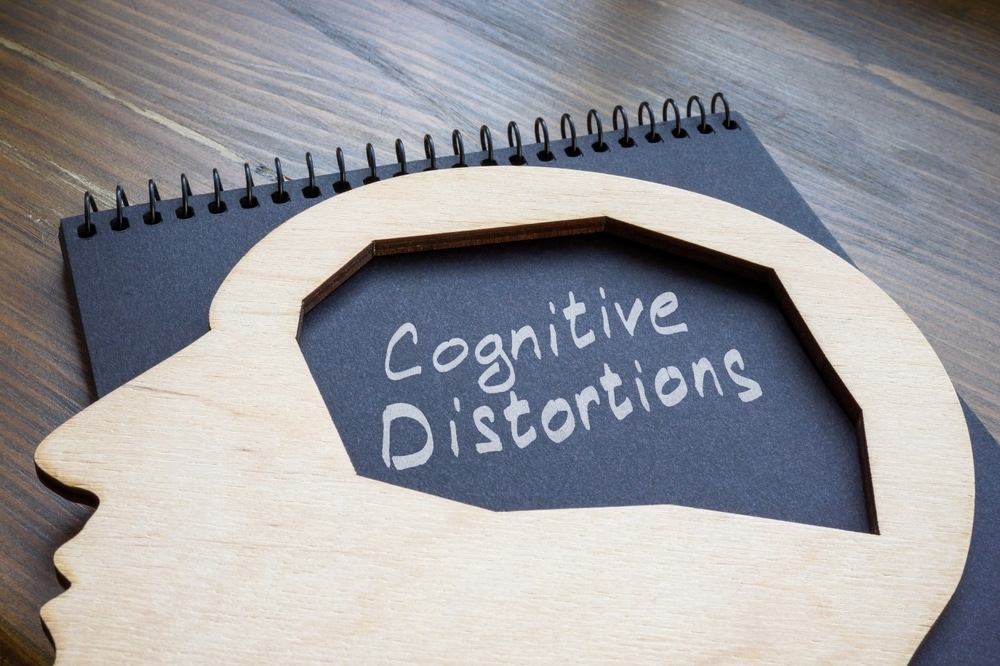
There are a few terms that speak to our brain chemistry and common thought patterns when it comes to the realm of addiction, and one such term is the realm of “cognitive distortions.” These kinds of distortions are the lies or rationalizations we tell ourselves when justifying a negative behavior, and cognitive distortions are common among those who deal with sex and pornography addiction (among other types).
At Desert Solace, we’re here to offer caring, compassionate treatment programs for sex and pornography addiction throughout Arizona, Nevada and Idaho, including both inpatient and outpatient programs. We regularly assist patients with important concepts like these, helping them understand the thought processes and related areas that impact their addiction – and how they can be overcome. Here are some common cognitive distortions that are often at play with sex and porn addiction, plus how they can be understood and often overcome.
Justification
Maybe the single most common cognitive distortion across all forms of addiction, including sex and porn addiction, is justification. Our minds are predisposed to seek out ways to excuse our behaviors that ultimately hurt ourselves or others – and this applies in both the short- and long-term.
Justification can take many different forms depending on the individual, from denying the severity of a problem (“I only watch porn occasionally”) to blaming external factors for one’s actions (“I wouldn’t have cheated if my partner showed me more affection”). Regardless of the specifics, justification is a major hurdle for many addicts to overcome.
Minimization
Another common form of cognitive distortion we see in addiction treatment is minimization – a process where individuals downplay the severity or impact of their actions. This can occur both during and after an addictive episode, with the addict rationalizing their behavior as not being that harmful or significant.
For instance, a pornography addict might rationalize their habit by saying it’s not hurting anyone (ignoring the potential harm to relationships and one’s own mental health), or claim that others engage in similar behavior. Minimization is often a way for addicts to avoid feelings of guilt or shame, but it ultimately serves as an obstacle to recovery.
Rationalization
Similar to justification, rationalization involves creating explanations or excuses for one’s actions. However, while justification tends to focus on the why behind an action, rationalization is more about the how.
In sex and porn addiction, rationalization might involve coming up with elaborate justifications for engaging in certain behaviors (“I only watch this type of porn because it helps me relax”) or finding ways to justify breaking boundaries or agreements with a partner (“They weren’t being clear about what they wanted”). Like justification, rationalization can be tough to overcome without outside help and support.
Blame
Another common cognitive distortion is blame, where addicts shift responsibility for their actions onto others or external factors. This can play out in many ways – from blaming a partner for not meeting one’s needs to shifting the focus to societal influences on sexual behavior instead of taking ownership over one’s own choices.
Blame often serves as a way to deflect feelings of guilt and shame, but ultimately it prevents an individual from taking responsibility for their own actions and seeking the help they need.
Catastrophizing
On the polar opposite end of the spectrum from minimization is catastrophizing – a cognitive distortion where individuals exaggerate the severity or consequences of their actions. In sex and porn addiction, this might lead someone to believe that one instance of cheating or viewing pornography will have catastrophic effects on their life and relationships. This kind of thinking can be paralyzing and may prevent an addict from seeking help or making positive changes in their behavior.
Normalization
In some cases, individuals may use cognitive distortions to normalize their addictive behaviors. For example, someone struggling with sex addiction might convince themselves that everyone engages in the same behaviors and that there’s nothing wrong with what they’re doing. This can be a dangerous mindset that prevents an individual from seeking help or recognizing the harm their actions are causing themselves and others.
Victimization
Another common cognitive distortion is victimization, where individuals see themselves as the victims of their circumstances or other people’s actions. This can manifest in addiction treatment when addicts blame others for their addiction or use past traumas to justify their behavior. While it’s important to address underlying issues and trauma, it’s also crucial for addicts to take responsibility for their own actions and seek help to overcome their addiction.
Denial
One of the most powerful cognitive distortions is denial – the refusal to acknowledge or accept the reality of one’s addiction. This can manifest in various forms, from denying that one has a problem at all to downplaying the severity of their addiction. Denial can be tough to overcome, but it’s an essential step for anyone seeking recovery and healing from sex or porn addiction.
At Desert Solace, we understand the complexities of addiction and address cognitive distortions through our evidence-based treatment approach. We work with patients to identify and challenge their distorted thinking, helping them develop healthier thought patterns and behaviors. If you or a loved one is struggling with sex or pornography addiction in Arizona, Nevada or Idaho, reach out to Desert Solace today to learn more about our programs and how we can help on your journey towards recovery.